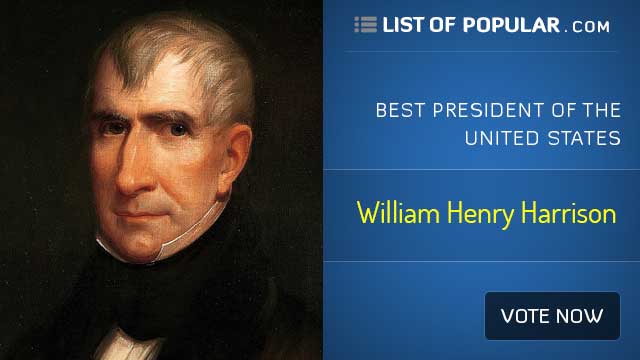The Best US President - William Henry Harrison
Early Life and Military Career
William Henry Harrison, the ninth President of the United States, was born on February 9, 1773, at Berkeley Plantation in Virginia. He hailed from a prominent political family and received a classical education. Harrison's early career was marked by military service, including his notable role in the Northwest Indian War and the Battle of Tippecanoe in 1811, where he earned the nickname "Old Tippecanoe."
Territorial Governor and Indian Relations
Harrison's military success propelled him into politics, and he became the first governor of the Indiana Territory in 1800. In this role, he worked to secure treaties with Native American tribes, but tensions escalated, leading to the Battle of Tippecanoe. The victory at Tippecanoe made Harrison a national figure and contributed to his reputation as a military hero.
War of 1812 and the Battle of the Thames
During the War of 1812, Harrison achieved further military success, most notably at the Battle of the Thames in 1813. The victory not only secured the Northwest Territory for the United States but also resulted in the death of the Shawnee leader Tecumseh, a significant blow to Native American resistance in the region.
Political Career and Presidential Election of 1840
After various territorial and diplomatic roles, Harrison entered national politics. He ran as the Whig Party's candidate in the presidential election of 1840, facing incumbent President Martin Van Buren. The Whigs presented Harrison as a military hero and a man of the people, using slogans like "Tippecanoe and Tyler Too." The campaign, marked by lively rallies and catchy slogans, contributed to Harrison's victory in a landslide.
Short Presidency and Death
William Henry Harrison's presidency, unfortunately, became one of the shortest in American history. He was inaugurated on March 4, 1841, delivering a lengthy inaugural address in cold, wet weather without wearing a coat. Unfortunately, he fell ill with what is believed to have been pneumonia shortly afterward. Despite medical efforts, Harrison succumbed to his illness on April 4, 1841, making him the first president to die in office.
Legacy and Historical Assessment
Harrison's brief presidency left little time for significant policy initiatives or achievements. However, his election and subsequent death had lasting consequences. His vice president, John Tyler, assumed the presidency, setting a precedent for vice presidents to take office in such circumstances. Harrison's presidency is often remembered for the catchy campaign slogans and the Whig Party's successful marketing of him as a relatable "log cabin and hard cider" candidate.
Personal Life and Family
Beyond his military and political career, Harrison had a large family. He married Anna Symmes in 1795, and they had ten children together. His grandson, Benjamin Harrison, later became the 23rd President of the United States, making the Harrisons one of the few grandfather-grandson pairs to hold the presidency.
Conclusion
William Henry Harrison's legacy is intertwined with his military service, particularly in the Northwest Indian War and the War of 1812, as well as his brief but impactful political career. While his presidency was cut short, his place in history as a military hero and the symbolic "common man" president endures. Harrison's contributions, though limited in presidential actions, remain a noteworthy chapter in the narrative of early 19th-century American politics.
William Henry Harrison's brief time in office and the circumstances of his presidency continue to capture the imagination of historians and political enthusiasts alike, making him a unique figure in American presidential history.

